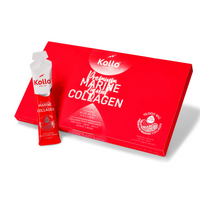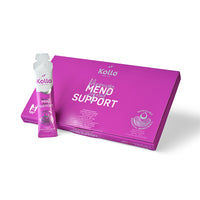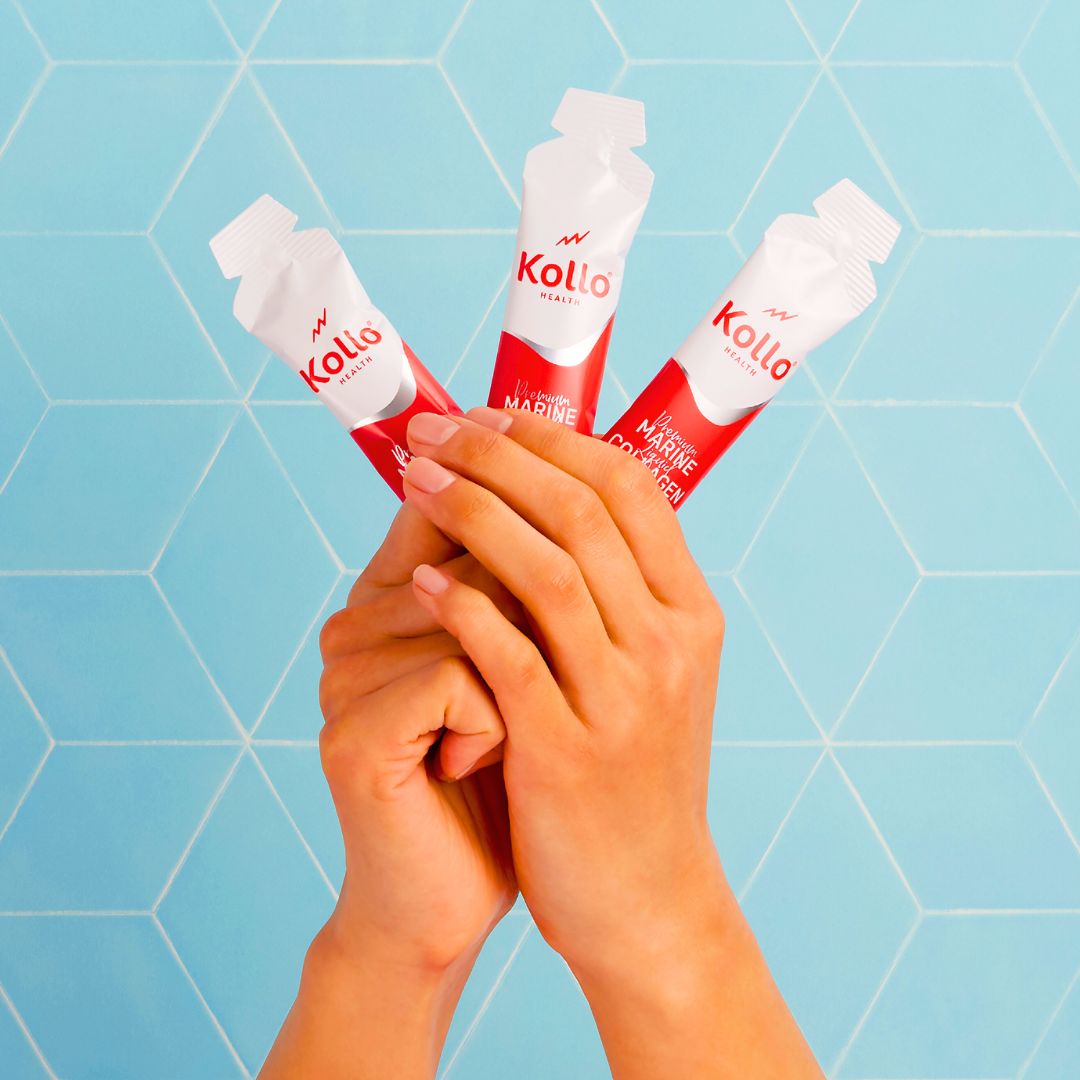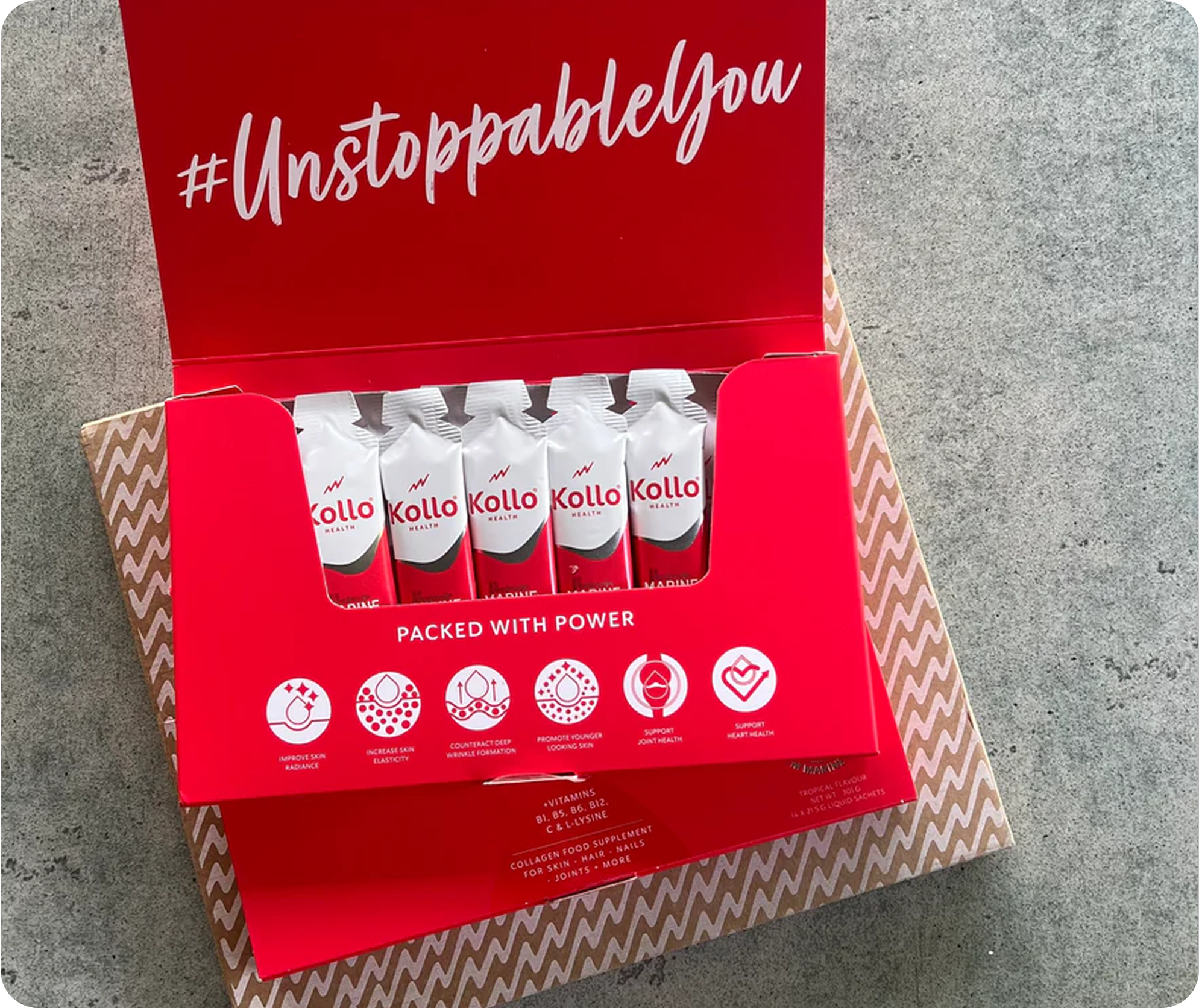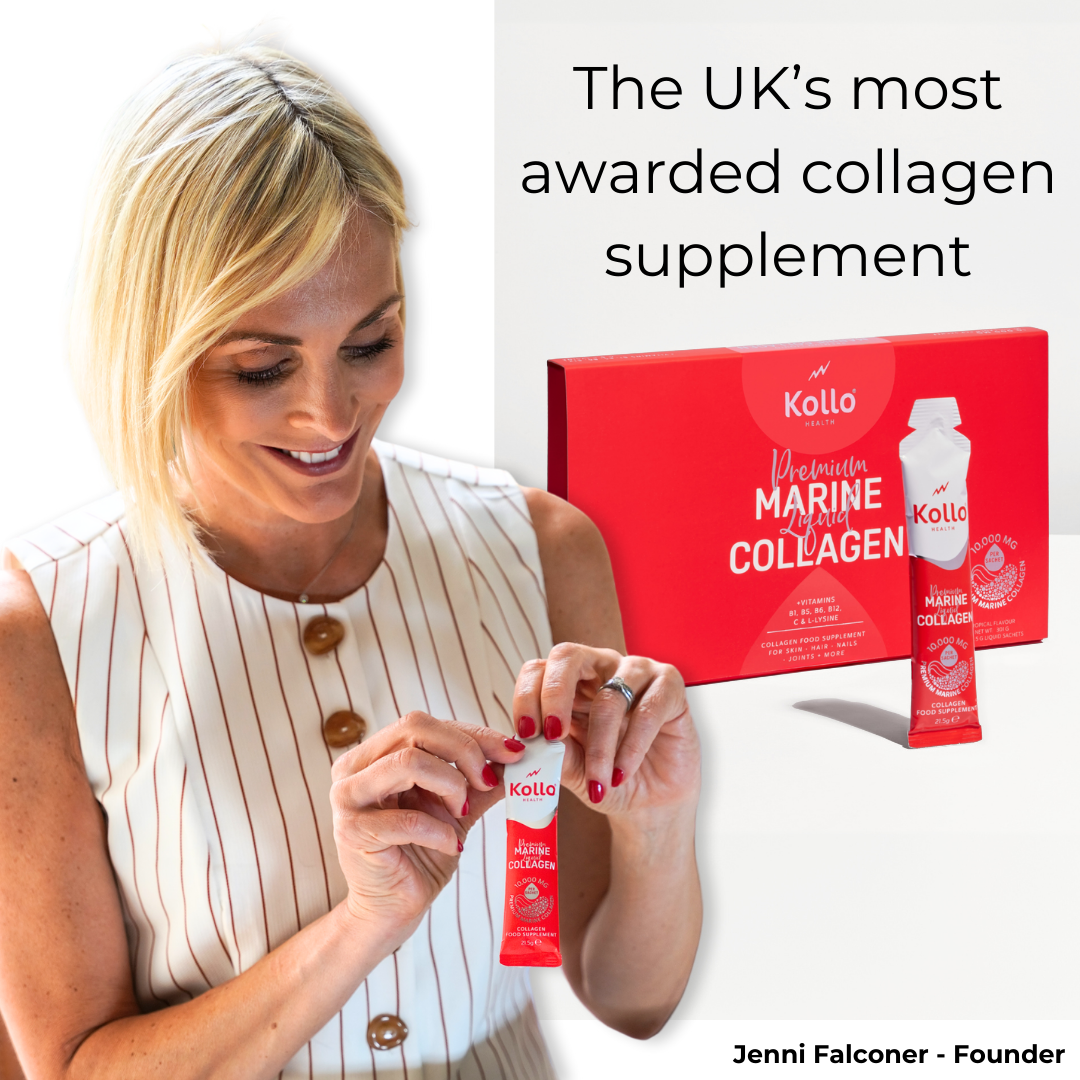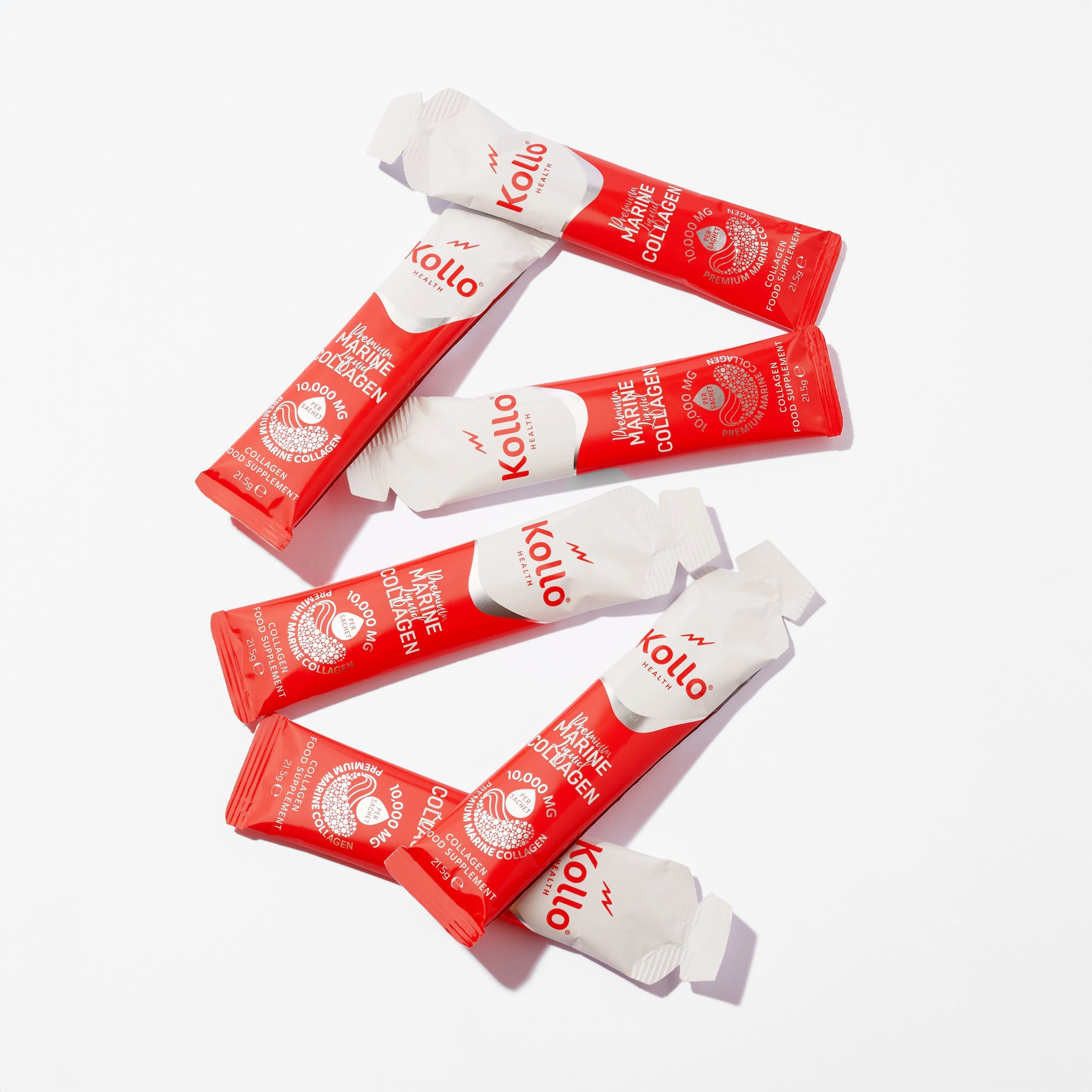What are the consequences of the loss of collagen and elastin in skin?
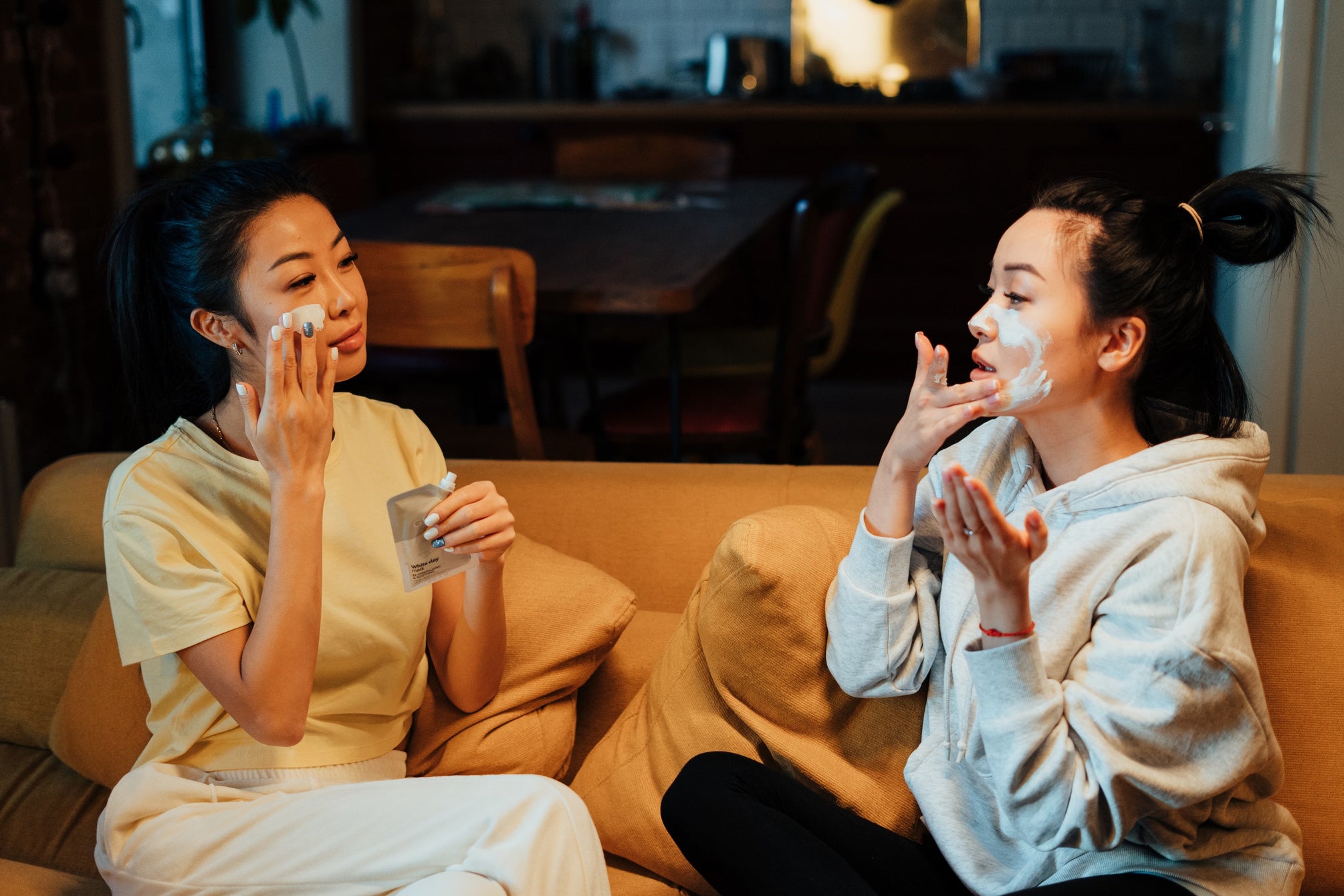
What are the consequences of the loss of collagen and elastin in skin?
The loss of collagen and elastin in skin essentially amounts to one thing: ageing. As we get older, our bodies lose collagen and elastin at an accelerated rate, and our ability to replenish it gradually diminishes. This results in the early signs of ageing that typically begin to set in during our thirties. In the skin, you will notice things like loss of hydration, slight discolouration, sagging and the development of fine lines and wrinkles. It may also have an impact on your hair and nails, because they are rooted in the skin.
In this post, we will take a closer look at the consequences of the loss of collagen in the skin and beyond and explore some solutions for the problem.
What’s the difference between collagen and elastin?
In the skin, the primary difference between collagen and elastin is that collagen gives it more tensile strength while elastin gives it suppleness and elasticity. Both of these proteins work in tandem to make your skin firm and supple.
Elastin is considerably more flexible than collagen. In fact, elastin is able to stretch to about twice its original length while collagen is only able to stretch about 10 beyond its resting length before it begins to break. This is why the two play slightly different roles in the skin and elastin is primarily responsible for elasticity.
It’s important to understand that the two proteins also exist in other tissues in the body and the loss of collagen and elastin can lead to health problems as well as cosmetic ones. For instance, the walls of our arteries can lose elasticity and become stiff, which can lead to an increased risk of hypertension, chronic kidney disease and stroke.
What is the role of collagen in skin?
Collagen is a key building block of the dermis, as well as your bones, muscles, tendons, ligaments, cartilage, arteries and gut. It makes our skin firm and plump, preventing it from sagging and also ensuring adequate hydration. It gives our skin the strength to retain its shape and structure even as it is exposed to the elements and our everyday movements, remaining smooth and free from blemishes. Collagen also plays an integral role in skin repair and scar formation and maintains the integrity of scar tissue which, as we know, is weaker and more prone to breakage than actual skin.
Why do our collagen levels decrease and what are the consequences?
The primary factor that leads to collagen decline is age. More things occur in the body that destroy collagen, and our bodies become less able to replenish that collagen fast enough to make up for it. There are external factors that can damage our collagen and accelerate this decline. These include excessive sun exposure, smoking, stress and poor diet.
The lowering of the collagen levels in our skin can have the following consequences:
• Skin sags and loses its smooth texture
• Skin loses some of its glow and colour
• The skin can feel dryer
• It becomes less resilient to everyday life, so wrinkles begin to form
• Wound healing gets slower
• Scars become more prone to breaking
• Hair and nails, rooted in the dermis, lose structure and integrity
Essentially, many of the early signs of ageing that set in as we approach middle age are caused by the reduction in collagen.
What is the role of elastin in skin?
Elastin works with collagen to maintain healthy, youthful skin. The collagen forms a matrix of cells called fibroblasts which takes care of skin repair and restoration from the dermis. Elastin provides the collagen matrix with the flexibility it needs to stretch and contract so the skin retains its original shape. Essentially, elastin aids in your skin’s resilience.
Why do elastin levels decrease and what are the consequences?
The same things that cause our collagen levels to decrease have the same impact on elastin. Though they are separate proteins, collagen and elastin are inextricably linked. So, as you might guess, the loss of elastin results in your skin losing much of that youthful elasticity. This further contributes to the sagging of skin in certain areas, like the neck and the jowls, and also causes the formation of wrinkles.
Again, the change in the ratio of collagen to elastin has other consequences in the body. We already mentioned the stiffening of arterial walls, and a similar thing can happen to the lining of the gut. Joint tissues like tendons and cartilage can also suffer with the same loss of elasticity, which may result in joint pain and even increase your risk of osteoarthritis.
Is it possible to reverse the loss of collagen and elastin in skin?
It may be possible to halt or reverse the decline in the approach to midlife. This starts with removing the bad habits that are accelerating the destruction of collagen and elastin in your skin. You will need to stop:
• Spending too much time in direct sunlight
• Smoking
• Eating excessive amounts of sugar and refined carbohydrates
• Living a stressful lifestyle
• Drinking too much alcohol
There are good habits you can try to adopt as well. These include:
• Eating a balanced diet with lots of protein, vitamins and minerals
• Exercising, including weight-bearing exercise
• Drinking more water
• Getting more sleep
• Wearing sunscreen
• Establishing a good skincare routine
This is a good way to start the transition towards taking better care of your collagen and elastin levels. The next step is to boost your production of those proteins further through supplementation.
Collagen supplementation with Kollo
Kollo is a liquid collagen supplement that contains a daily dosage of 10 grams of premium grade marine collagen peptides. This high-quality collagen content is conveniently broken down into highly bioavailable amino acid chains derived from fish collagen. The nutrients within are easy for your body to absorb and they are primed to stimulate and fuel collagen production in your body. Combined with the lifestyle changes recommended in the previous section, this could be all you need to halt the loss of collagen and elastin in skin, at least for some time. Then, as you get older, continuing these habits may keep the collagen loss at a more manageable level.
The key benefits of Kollo as opposed to other collagen supplement are as follows:
• A high daily dosage of premium grade marine collagen peptides
• Type I collagen in the most bioavailable form on the market
• A formula that also contains B vitamins, vitamin C and l-lysine
• A liquid suspension that further enhances the bioavailability of the nutrients
• Easy to take – simply mix with water and drink
• Great tasting thanks to natural, sugar-free tropical flavouring
• Informed Sport certified to demonstrate quality and reliability
• Selected as an ‘Amazon’s Choice’ product
• A multi-award winning supplement
• More than 2,000 5-star reviews from verified buyers
Kollo is easy to incorporate into your daily routine and is developed with the customer experience in mind. Benefits for the skin can start to materialise in as little as 6-8 weeks – if you don’t believe us, check out our before and after showcase and read the stories of the lovely men and women in our customer reviews section.
Are there elastin supplements?
While collagen is the most important thing for youthful, healthy skin, it is possible to get supplements to boost your elastin as well. These supplements prohibit the enzymes that destroy elastin in the body and aid the synthesis of new elastin fibres. Generally speaking, the contents of a good collagen supplement will help with elastin synthesis to a degree and, combined with the lifestyle changes mentioned earlier, will go a long way towards restoring and protecting your elastin. But if you want to further enhance that boost, you could explore elastin supplements to take alongside collagen.
Final thoughts on the loss of collagen and elastin in skin
Ultimately, there is no stopping the onset of ageing. It will happen eventually, but you can take steps to hold it off for longer and reduce its impact as it occurs. With some strategic lifestyle changes and the incorporation of collagen supplementation, you can retain a more youthful appearance for longer and hold off some of the impacts things like menopause have on your collagen levels. You can have more comfortable joints for longer and maintain a higher level of bone density. You can feel more energetic, promote lean muscle mass and keep your gut and arterial system in good health. Collagen is key to all these things and your quality of life will be better if you make some adjustments to preserve and promote your collagen.
We invite you to explore Kollo by visiting our website. Look at the detailed information about our product, the links to scientific research, the things our customers have to say and the huge amount of knowledge in our blog section. If you still have any questions, please don’t hesitate to contact us. Our team can be reached via email or social media and we would love to hear from you.
